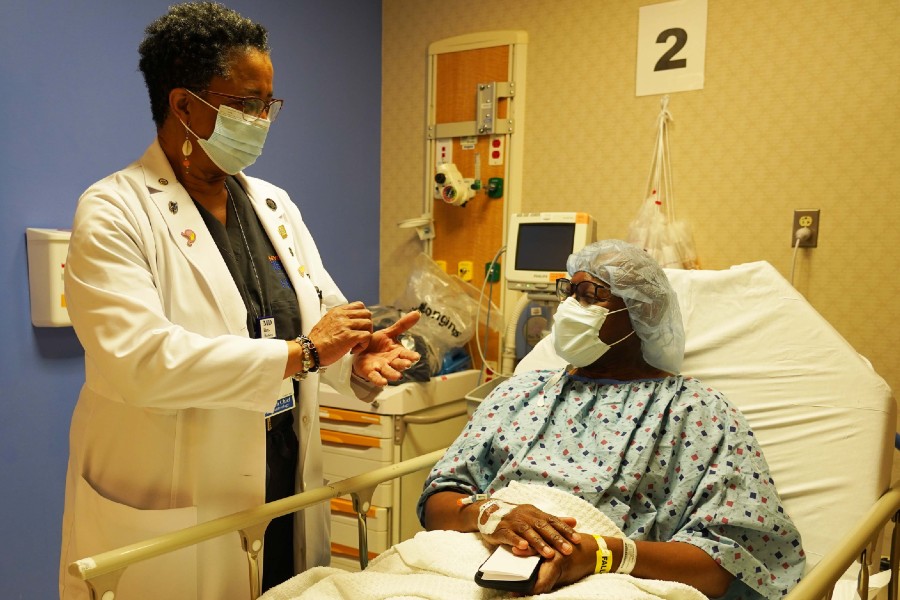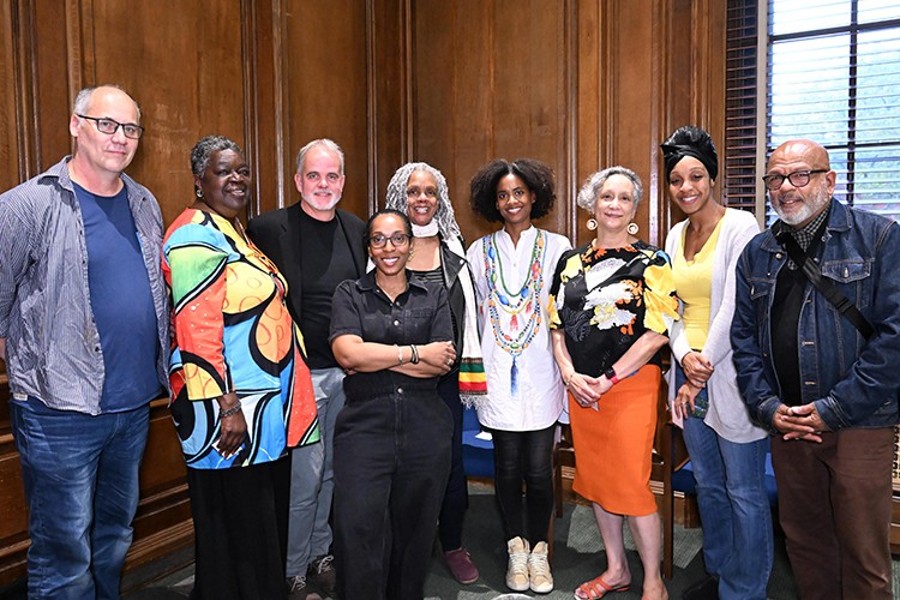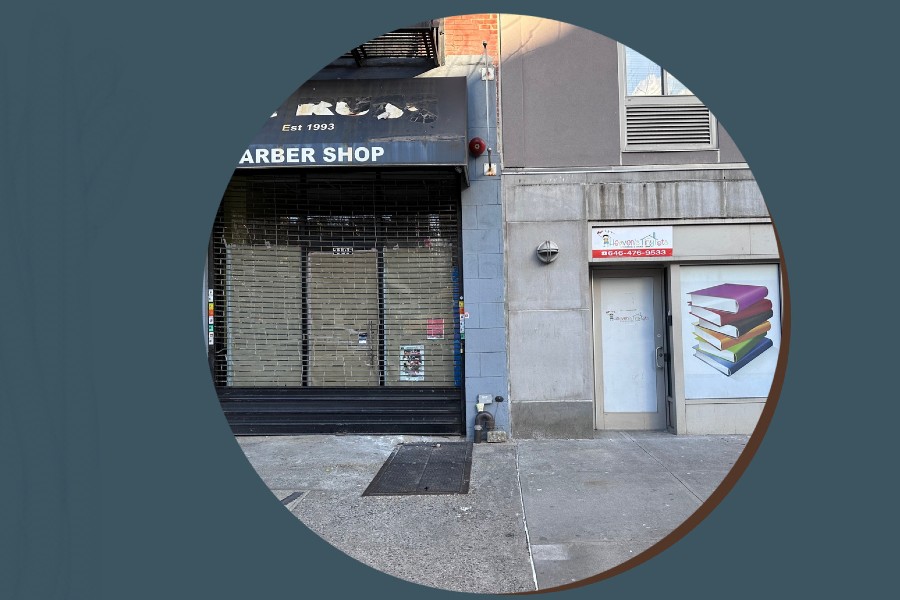
Today, families who lost loved ones to COVID-19 in jails and prisons, formerly incarcerated leaders, and other advocates held a press conference in advance of a New York State Senate hearing on COVID-19 in prisons and jails.
Speakers demanded that New York State address the incarceration crisis, including by granting clemency to elderly and immunocompromised people and people within one year of release, passing Elder Parole, Fair & Timely Parole, and the HALT Solitary Confinement Act, protecting pretrial reform from further rollbacks, and greater access to PPE and testing.
View the full press conference here.
The press conference was organized by the Center for Community Alternatives, the #HALTsolitary Campaign, the Release Aging People in Prison (RAPP) Campaign, Parole Preparation Project, and FWD.us.
“We are here because prisons and jails were dangerous and deadly before this pandemic and they are only more so now.”
Marvin Mayfield, Statewide Organizer at Center for Community Alternatives, began the press conference by naming some of those who have died behind bars of COVID-19, “Leonard Carter. Lulu Benson-Seay. Juan Mosquero.” He added, “We are here because prisons and jails were dangerous and deadly before this pandemic and they are only more so now.”
To date, the state has turned a cold shoulder to the more than 48,000 incarcerated New Yorkers who have received inadequate access to PPE and testing, with sharply disproportionate impacts on Black and Latinx people. Eighty-one (81) percent of people who died in state prisons during the pandemic were people of color.
During the press conference, speakers expressed dismay that Governor Cuomo failed to issue clemency to older and sick people behind bars amid the pandemic and instead is misusing widespread solitary confinement in lieu of safe medical quarantine. To date, the state has turned a cold shoulder to the more than 48,000 incarcerated New Yorkers who have received inadequate access to PPE and testing, with sharply disproportionate impacts on Black and Latinx people. Eighty-one (81) percent of people who died in state prisons during the pandemic were people of color.
The press conference included written testimony by two currently incarcerated New Yorkers. The first explained, “In July of this year, I was diagnosed with COVID-19 and moved overnight to a solitary confinement cell at Fishkill Correctional Facility. I was confined for 23 hours per day. Aside from getting my temperature checked, I didn’t receive any additional medical care. I never saw a doctor. It took four days for me to get access to my blood pressure medication and my blood thinner.
Two days into my confinement, the pipe in my cell burst, and water came into my cell. I cleaned it out myself, which took me two hours. Because of the broken pipe, I was without a toilet for at least 15 hours. I felt that I was being punished for something that I did not do—being punished for testing positive. I was terrified because of all the ongoing medical complications that I have and because I couldn’t get answers regarding my physical well-being.”
Susan Li, a member of the Release Aging People in Prison Campaign lost her father to COVID-19 while he was incarcerated. She spoke directly to New York’s elected leaders, “To our officials, I want any of them to imagine what it’s like to watch a parent or child die behind bars and to be deprived of updates of their loved one’s status and conditions in their last days, as I was. To face resistance every step of the way, while you’re just trying to know which hospital your dad is at.”
Cynthia Carter-Young, a member of the Center for Community Alternatives also mourned the loss of an incarcerated family member who passed away from COVID-19 while incarcerated. She explained, “On April 14th, I got the call that my brother Leonard Carter, a 60-year-old man, died of COVID-19 while he was incarcerated in Queensboro Correctional Facility. He was already granted parole months before this pandemic. After spending a quarter of a century behind bars, we were looking for him to come home, but that didn’t happen. My brother didn’t get free until he left in a body bag.”
In the written testimony of a second currently incarcerated person, he noted, “Lately I have been hearing a lot of prisoners speak about not wanting to die in prison. Sometimes I wonder why so many people die in prison who haven’t been sentenced to death?”
“Our fears came true, during COVID-19, we were held hostage and our dates to return home were taken away. As a mother, I lived with the fear that I would not return home to my baby and young children. I remember going to medical and due to inadequate space it was overcrowded, 60 women waiting in one room with maybe 3 feet of space between us.”
Speakers also included women who were incarcerated during the pandemic. “All mandatory prison programs in Albion were shut down and we worried about not being released as the programs were required in order to go home,” said Dominique Scaggs of New Hour Women and Children – Long Island. “Our fears came true, during COVID-19, we were held hostage and our dates to return home were taken away. As a mother, I lived with the fear that I would not return home to my baby and young children. I remember going to medical and due to inadequate space it was overcrowded, 60 women waiting in one room with maybe 3 feet of space between us.”
The concerns of formerly incarcerated people were echoed by health experts. Dr. Bobby Cohen, a prison health expert and member of the Board of Corrections, noted that “it is very very likely that there will be a second wave and that will cause tremendous destruction and death.”
“We all see what’s going on across the country, even in New York State, the brutality and murder of Black and Latinx people. We cannot separate the impact of COVID-19 from the impact of racism and mass incarceration.”
Advocates, however, were clear that the current crisis is not simply about the pandemic, but a larger crisis of mass incarceration. Jose Saldana, Director of the Release Aging People in Prison explained, “We all see what’s going on across the country, even in New York State, the brutality and murder of Black and Latinx people. We cannot separate the impact of COVID-19 from the impact of racism and mass incarceration.”
In addition to demanding releases, advocates called for the passage of the HALT Solitary Confinement Act. Kevin Mays, a formerly incarcerated leader of the HALTsolitary Confinement Campaign argued, “DOCCS’ policy to take and isolate individuals who contracted COVID by placing them inside this special housing unit – which is solitary confinement – is deplorable. Clearly the individuals will not get the medical attention that they need in order to sustain themselves.”
Photo credit: Susan Li, lost loved ones to COVID-19 while incarcerated in New York State prisons, speak during the press conference. Photo credit: Center for Community Alternatives.
Become a Harlem Insider!
By submitting this form, you are consenting to receive marketing emails from: Harlem World Magazine, 2521 1/2 west 42nd street, Los Angeles, CA, 90008, https://www.harlemworldmagazine.com. You can revoke your consent to receive emails at any time by using the SafeUnsubscribe® link, found at the bottom of every email. Emails are serviced by Constant Contact








